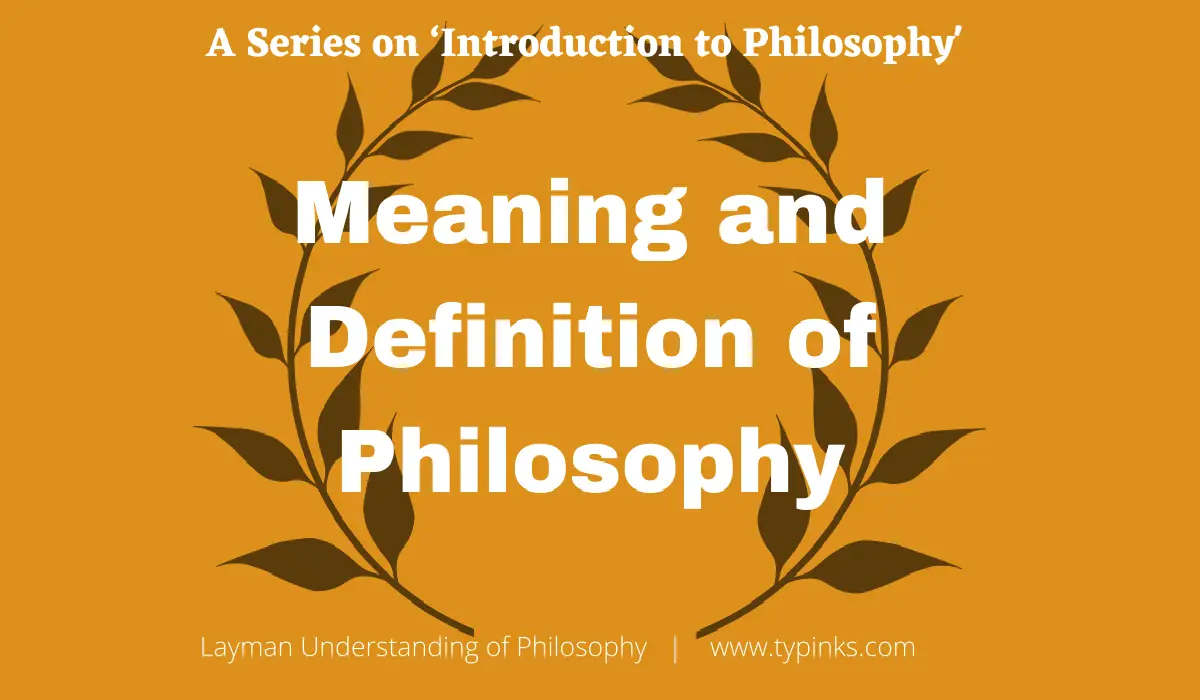
Why Philosophy?
If a person knows how to read and write, learning philosophy can be one of the things that can be kept on his/her bucket list. Philosophy which is considered the mother of all subjects can help you nurture your skills in any journey you partake. The study of philosophy helps you enhance your ability to solve general problems, shapes your argumentative skills in terms of better communication, improves your persuasive powers, and intensifies your ability to better express your thoughts through writing.

Who can learn philosophy?
A long time ago in the 6th-century city-state of Athens, there were a group of thinkers who were called ‘Sophists’. They propagated the idea that philosophy as a discipline can be taught and discussed only by the affluent class. This school of thought however did not last long as it was considered as ‘philosophy for money’.

This school of thought was highly disregarded by Socrates and Plato, as they believed that wisdom cannot be bought but it is earned through constructive debates and discussions. They believe that philosophy is for the ordinary who has the quest for knowledge.
This short story conveys to its readers that philosophy as a discipline can be learned by anyone who wants to learn it. There is no class division in philosophy. Whether it is a scientist or a poet, philosophy is for all. In this generation, where knowledge is at a child’s doorstep, learning philosophy becomes much easier and affordable…..

What is the city-state of Athens?
It is the capital of Greece and was probably the most civilized place in the world at that time, where astronomers, biologists, logicians, artists, mathematicians, and all sorts of thinkers existed. They were all called Philosophers.
Who is a philosopher?
A person who quest for knowledge and has the urge to question existing realities.
What is meant by the term Philosophy?
Philosophy is a combination of two Greek words, ‘philein’ and ‘sophia’, meaning lover of wisdom. In ancient times a lover of wisdom could be related to any area where intelligence was expressed.
In a broader perspective, it is an activity people undertake when they seek to understand fundamental truths about themselves, the world they live and the relationship between the world and themselves.

What is the history of philosophy?
In the 5th Century AD, when Greeks began to trade by ships, they came across new ideas and traditions, which were not familiar to them. They, then question their traditions and some believe that their ideas are superior to others while others thought it is just another moral code of conduct.
This interaction between cultures and ideas give rise to the beginning of philosophy, through ‘The Seven Sages of Greece’.
Who are the Seven Sages of Greece?
They were the seven wise ancient Greek men who were philosophers, statesmen, and law-givers. They were regarded as physicists rather than theologians, they try to explain human behaviour with the help of five elements namely; earth, air, sky, water, and fire.
What are their names?
Thales, Pittacus, Bias, Solon, Cleovoulos, Periandros, and Chilon.

What is their relevance?
Pittacus Lore claims that Seven of the Elders went to Greece and introduced it to more advanced ways of thinking, and set about ending the war that plagued it.
With the decline of the ‘Seven Sages of Greece’, Socrates who is widely known as the ‘father of western philosophy’ promoted his school of thought and influence many youths including Plato and Aristotle. With Socrates, philosophy developed gradually.
What is Socrates View on Philosophy?
Socrates who is considered as the ‘father of western philosophy’ believed that philosophy is about ‘questioning’ anything; particularly against conventional wisdom and traditional beliefs. His behaviour of questioning and debating influenced and inspire many young Athenians.
Later he invented the method of ‘dialogue’ where two people are debating to give rise to a new idea. This intriguing method of questioning eventually led to his execution by forced poisoning on the charges that his act was blasphemous and corrupting young minds.

What is Socratic Dialogue?
It is a method of inquiry with no procedural methodologies like geometry or physics. It is a process of argument and debate. Participants often find that their answers are inadequate and unacceptable. Socratic Dialogue is, therefore, better at revealing ignorance than producing answers.

Plato who is considered the greatest philosopher of all time is highly influenced by the ideas of Socrates. In the next part, learners will be adapted to the ideas and contributions of Plato.
Summary
In this part, we learn about the meaning, definition, and historical background of philosophy. Beginning from Plato, western philosophy is concrete as it is collected and written in books.

Stay tuned….. Plato awaits you
References
- Robinson, Dave and Judy Groves “Plato – A Graphic Guide”, Icon Books Ltd, 2010
- “What Is Philosophy? | Department of Philosophy.” Facebook Instagram Twitter YouTube LinkedIn More FSU Social Media, https://philosophy.fsu.edu/undergraduate-study/why-philosophy/What-is-Philosophy. Accessed 1 Sept. 2022.
- Introduction_To_Philosophy_Dallas_M_Roark_ch_1. https://www.qcc.cuny.edu/socialsciences/ppecorino/roark-textbook/Chapter-1.htm. Accessed 1 Sept. 2022.
- Introduction_To_Philosophy_Dallas_M_Roark_ch_1. https://www.qcc.cuny.edu/socialsciences/ppecorino/roark-textbook/Chapter-1.htm. Accessed 1 Sept. 2022.